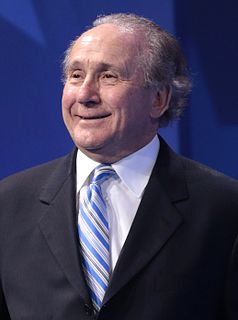A Quote by Gordon S. Wood
[John] Adams's letters reveal his persistence and determination to win over the Dutch against all odds and to convince them and the other peoples of Europe of the potential greatness of the United States and of the importance of the Revolution to the world.
Related Quotes
Deeply versed in history, [John Adams] said over and over that America had no special providence, no special role in history, that Americans were no different from other peoples, that the United States was just as susceptible to viciousness and corruption as any other nation. In this regard, at least, Jefferson's vision has clearly won the day.
In the Islamic world, the U.S. is seen in two quite different ways. One view recognizes what an extraordinary country the U.S. is.The other view is of the official United States, the United States of armies and interventions. The United States that in 1953 overthrew the nationalist government of Mossadegh in Iran and brought back the shah. The United States that has been involved first in the Gulf War and then in the tremendously damaging sanctions against Iraqi civilians. The United States that is the supporter of Israel against the Palestinians.
I think [John Adams's] influence on the federal Constitution was indirect. Many including James Madison mocked the first volume of Adams's Defence of the Constitutions of the United States in 1787. But his Massachusetts constitution was a model for those who thought about stable popular governments, with its separation of powers, its bicameral legislature, its independent judiciary, and its strong executive.
[John] Adams's perception of Europe, and especially France, was clearly different than [Tomas] Jefferson's. For Jefferson, the luxury and sophistication of Europe only made American simplicity and virtue appear dearer. For Adams, by contrast, Europe represented what America was fast becoming - a society consumed by luxury and vice and fundamentally riven by a struggle between rich and poor, gentlemen and commoners.

























